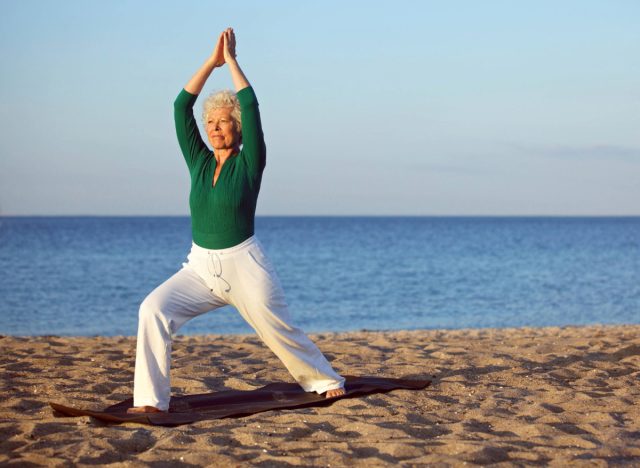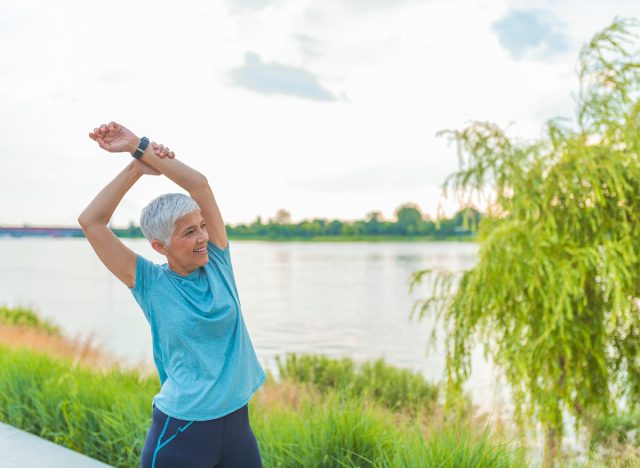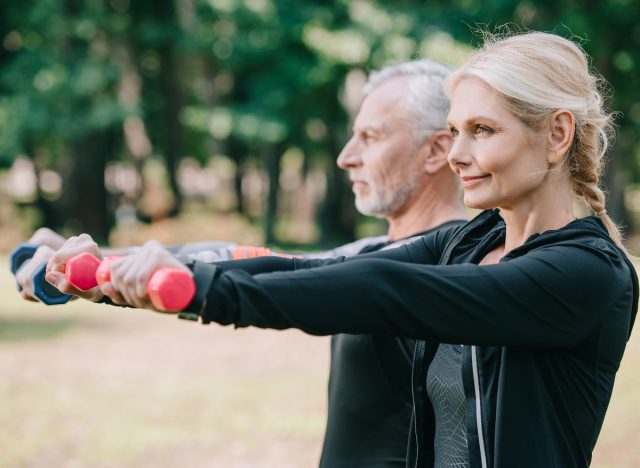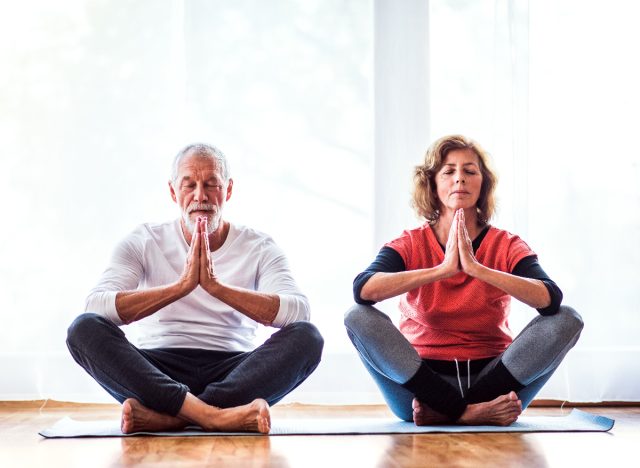As we age, it’s important to maintain healthy habits to keep our bodies active, strong, flexible, and mobile. Aging brings about various changes in our bodies, such as wrinkles, age spots, and gray hair. Research indicates that muscle mass and bone density decrease as we age, leading to increased joint stiffness. It’s crucial to be aware of these changes and take steps to address them. To help you enhance your daily routine, Ronny Garcia, CPT at Blink Fitness, shares seven habits that can harm your flexibility as you age.
Garcia emphasizes the importance of maintaining flexibility to reduce the risk of strains, sprains, and injuries. Flexibility plays a key role in ensuring proper body alignment and improving range of motion. By staying flexible, you can move more freely and carry out daily activities with ease.
Read on to discover the seven daily habits that can impact your flexibility as you age. And once you’re done, check out the 6 Best Pilates Exercises to Enhance Your Balance & Coordination for further insights.
You’re not moving your body in the morning.


Kickstarting your morning with some healthy movement can set the tone for your entire day. Something as simple as heading outdoors for a brisk walk around your neighborhood or engaging in a light yoga flow will stretch out and warm up your body in minimal time. It’s an excellent habit to get into.
You’re sedentary.


Being sedentary or assuming a “couch potato” lifestyle is one of the worst things you can do for your flexibility and overall health. When you sit for a good portion of the day, you’ll experience muscle tightness and overall decreased flexibility, explains Garcia. In addition, research shows that sitting too much could lead to weight gain, chronic inflammation, and even certain cancers.
Make it your mission to get up and take movement breaks every so often!
You don’t have a go-to stretch routine.


It should come as no surprise that your body will be all-around less flexible if you don’t stretch it out. “Not incorporating regular stretching into your routine can cause muscles to become stiff and less pliable,” Garcia tells us. “To stay flexible, perform regular dynamic and static stretches with all major muscle groups. Focus on stiffness like the hips, hamstrings, and shoulders.”
You’re slouching.


Being mindful of your posture—and strengthening it—plays a key role in flexibility. “Slouching or hunching over can shorten muscles and restrict range of motion over time,” cautions Garcia.
You’re not warming up.


Don’t forget to warm up; it’s a crucial part of your workouts, yet many individuals disregard it. “Skipping warm-ups before exercise can increase your risk of injury and contribute to stiffness,” explains Garcia.
To make the most of any flexibility workout, OrthoInfo emphasizes the importance of warming up before you move into stretching. In addition, make sure your stretches are gradual and gentle. And lastly, stretching out your body shouldn’t be painful. If it hurts, it’s imperative to check in with a certified personal trainer or your healthcare provider.
You’re not strength training.


Strength training, aka resistance training, is the name of the game if you want to stay strong and flexible well into older age. In fact, research shows that resistance training can boost your flexibility or range of motion all on its own. The same research reveals that exercise order and the intensity at which you train can impact changes in range of motion when performing resistance training.
You’re not giving your body enough rest and recovery.


Rest and recovery is another key aspect to your overall progress. Even though it may feel like you’re not being as productive on recovery days, your body requires them to repair itself.
“Improper rest and recovery (i.e. overtraining) can lead to muscle fatigue and reduced flexibility,” Garcia stresses.
Frequently Asked Questions
Why is flexibility important as you age?
Flexibility is crucial as you age to maintain range of motion in your joints, prevent injuries, and improve overall quality of life. It can also help with activities of daily living and keep you mobile and independent.
What daily habits can affect flexibility negatively?
1. Avoiding Stretching:
Skipping regular stretching exercises can lead to tight muscles and reduced flexibility over time.
2. Living a Sedentary Lifestyle:
Not moving enough or sitting for long periods can contribute to muscle stiffness and decreased flexibility.
3. Poor Posture:
Slouching or having improper posture places strain on your muscles and joints, limiting flexibility in the long run.
4. Lack of Hydration:
Dehydration can make your muscles tight and less pliable, affecting your overall flexibility.
5. Overtraining or Incorrect Technique:
Exercising too intensely without proper form can lead to muscle imbalances and reduced flexibility.
6. Ignoring Pain or Discomfort:
Ignoring signs of pain or discomfort during exercise can lead to injuries that affect your flexibility in the future.
7. Not Getting Enough Rest:
Rest is crucial for muscle recovery and flexibility. Not allowing your body enough time to rest and repair can hinder flexibility improvements.






